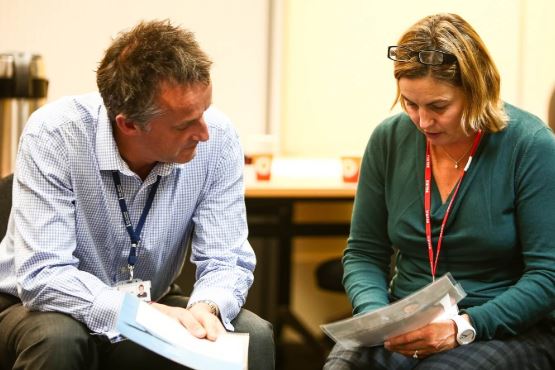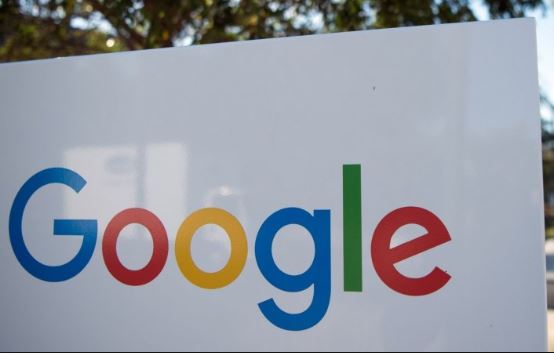Iain Henderson is Deputy Head (Educational Developments and Partnerships) at Wellington College. He has worked in both the state and independent sectors, he has been a Head of Year and a Housemaster, an Assistant Head and is now Deputy Head. One of his main responsibilities has been to develop, embed and support a coaching culture across the whole school, and the Wellington family of schools, which includes state and independent schools in the UK and internationally. He would also like to bring coaching to the Wellington College Teaching School Partnership.
Iain trained in coaching with CTI and Graydin, and has already successfully delivered coaching training to over 250 teachers.
Iain is a man with lofty ambition and more than enough determination and self-propulsion, that I would not bet against him. He is generous, professional and I am most grateful to him for his time.
I recently had the opportunity to discuss the introduction of coaching at Wellington College with Iain, through to where they are now. What a fantastic and enlightening 80 mins it was. Thank you Iain and it is with his generosity I share my notes.
It started here
Ahead of the meeting I shared a handful of questions I had from my reading and recent visit to Wells Cathedral School. Some looked to confirm what I had learnt and some to extended it, moreover they framed our conversation. And I am so pleased that I did, as it was fast paced, littered with insight and I found myself expeditiously trying to capturing Iain’s refined reflections as fast as I could.
What first motivated you / the College to pursue Coaching and a ‘culture of coaching.’
I was surprised to learn that coaching was initially proposed at Wellington College to promote student personal development (not staff development or leadership development). Whilst baseline data at the College had remained consistent for three consecutive years, and the academic percentage of students attaining AB grades had risen from 61% to 93% and yet, the number of students successfully securing places at the top international universities had remained relatively stable / modest (9 students).
Feedback from the University Admissions teams had highlighted that although Wellington College students showed they had the intellectual capacity they perhaps didn’t have the intellectual curiosity or academic agency of those that were successful in securing places. The students lacked what Iain referenced as “self-propulsion.” (A term that I may adopt, over the more confusing / conflation of resilience and perseverance).
With a strengthening staffing model, there was also a sense that coaching would support staff leadership development however this was very much a secondary consideration. After all, “which organisation doesn’t want to unlock the potential of their staff, promote autonomy, ownership and independence.”
The final point – Iain’s recognised his own personal influences for promoting coaching. His father, formerly a business executive in the forestry and paper industries, had moved to mentoring and coaching leaders and staff both within and beyond those industries. Second, having been given a Boarding House Master responsibility, he had observed first-hand the underdeveloped personal qualities of some of the Wellington College students (all-boys at this time), corroborating the subsequent University Admissions feedback. Third, as House Master he had adopted and developed a questioning engagement style with his students that naturally aligned with coaching (although he did not know that at the time) and therefore taking that step towards coaching for students was the apparent progression.
Top 2 tips for convincing the Board / the Master / Headteacher to release staff time / professional development funds – to coaching.
At Wellington College, investment in professional development for staff at that time was almost unbound (don’t let this distract or deter you). Staff are on-site at Wellington College and various training opportunities can be relatively easily convened. The College sought an external support provider.
Accepting that this was context – introducing coaching was not without its challenges. Aside the “unbound budget,” proximity of staff, there is a need or additional expertise and for patience. Coaching takes time to reap benefit.
Iain also pointed out that even in these favourable conditions and context, the adoption of a coaching was not initially fully endorsed at the start, by the school’s Master. However there was sufficient room to manoeuvre and desire to learn among the teachers. Within a year or so, the benefits were evident and self-promoting.
Now [as is current practice] the College recruits through a values based recruitment programme. Support for coaching is screened / required and formally introduced through an Induction Programme and an internally designed 14 hour coaching course. The coaching education is in “perpetual top-up” mode. (Do not forget that there will be a need for supervisory support also).
Are coaches accredited? If so, to what level?
Iain outlined that at first there was huge external support and training from their partner. Approximately £500 per staff coach was invested in that first cohort. “The aim was always to develop self-sufficiency for coaching training internally in the long run,” Iain reflected. Since, Iain has devised a two day Foundational Coaching course that is delivered as part of staff induction. This has been shared with partner schools through the Teaching Alliance, Iain’s own generosity and incentive to spread coaching, and with their partner Academy.
An Advanced Coaching course is also available, (14 hours). This course introduces 5 new coaching tools, each of which builds on and reinforces the skills and tools learned in the Foundational Course. After the course, Iain, or one of the other trainers that he has developed, then acts as the coach and supervisor.
This is second incidence of teacher-coach-supervisor. Depending of the size of the schools, a role that requires proscribed time (1 day per 50 staff?) [I’m not sure exactly what this would look like to be honest?] versus external support, course delivery and supervisory costs. This is all speculative.
Return on Investment – What would be the most significant tangible and intangible benefits from your work on Coaching in a school setting?
Understandably given that Iain has invested so much of himself in coaching, I was most interested to hear his answer to this question.
Iain offered two distinctive arguments for coaching in education. First the “intrinsic worth” – the inherent goodness in “unlocking potential in others.” Developing a culture of coaching, moves schools from a position of compliance to compassion. Second the “instrumentalist perspective” – outlining the benefits of coaching to improving student outcomes.
It is now widely accepted providing coaching directly to students can have a positive impact on results (Devine et al ., 2013).
Research here in the UK comparing sixteen year olds that received coaching over 3 year period with those that did not, showed improved examination performance and increased levels of hopefulness (passmore and Brown, 2009). In Australia coaching provided by school based staff lead to increasing resilience, well-being and hopefulness (campbell and Gardner, 2005; Green, Grant & Rynsaardt, 2007). There also appears to be benefits for students’ who coach others, whereby the student-coach enhance their communication skills, improve their problem-solving abilities and demonstrate increased confidence in finding new solutions (van Nieuwburgh et al., 2012).
Much like Wells Cathedral School, the tangible benefits can be identified, if rarely measured, with one notable exception. The number of students accessing top international universities more than doubled followed the College’s commitment to coaching.
Moreover, it was again, the anecdotal evidence that was most compelling. From a staff member writing their first textbook and moving onto a position of Head of Politics, to the golf team who experienced a new style of sports coaching (coaching-styled), being ranked number 1 in the country for 7 out of 8 years. It is the sense of “being” and sense of personal agency and resilience shown in performance areas such as drama, music and art that was highlighted. Not all that counts can be counted.
With his vast experience, Iain councils that
We have to be careful interpreting research on coaching because sometimes the actual methodology being used in the setting being researched is not really coaching, but some other form of help, often mentoring in nature.
Iain Henderson
And with that insightful reflection and food for thought, the interview ended.
In the interim, I share my notes and Iain returning his edits and further insights, whilst I know that in a financially constrained education setting, the benefits of coaching may be hard to justify, they are evident, secure and wholesome. I have re-written Iain’s words here, for the “intrinsic worth,” and the inherent goodness in “unlocking potential in others,” – potentially, the value of which, may always be invaluable.
Devine, Mary & Meyers, Raymond & Houssemand, Claude. (2013). How can Coaching Make a Positive Impact Within Educational Settings? Procedia – Social and Behavioral Sciences. 93. 10.1016/j.sbspro.2013.10.048.


